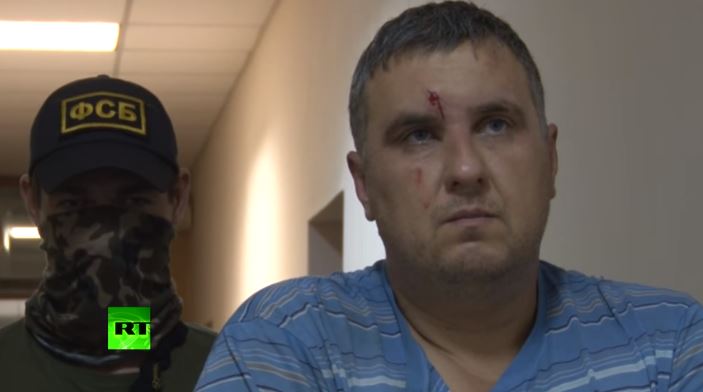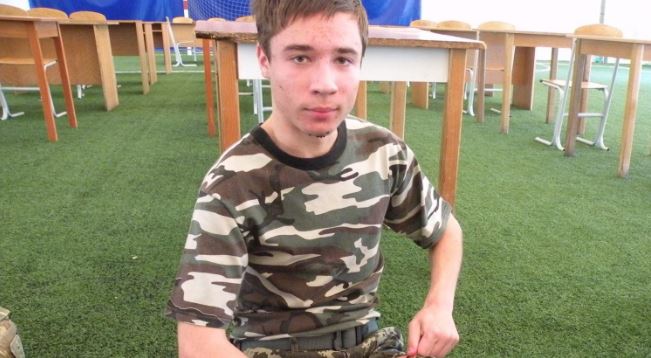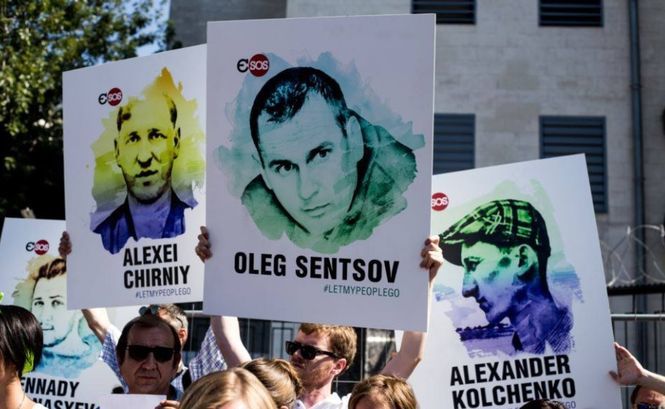191 children of Crimean Tatars, the indigenous population of the Crimean peninsula, are growing up without their fathers. After Russia occupied it in 2014, it has cracked down on all dissenters -- especially the Crimean Tatars, who resisted the illegal landgrab. Some of the very youngest ones have never seen their fathers -- they were born after their arrest. A photo exhibition now tells their story.
2021 marked the seventh anniversary of the Russian occupation of the part of sovereign Ukrainian territory, the Crimean peninsula. But not everyone in Crimea shares pro-Russian sentiments. And those who disagree with the occupation regime often become subject to persecution for political motives. Illegitimate occupation courts open false and fabricated cases against de facto innocent pro-Ukrainian activists, civic journalists, patriots as well as against the representatives of the indigenous Crimean Tatar people, only for their views and nationality.
The Crimean Tatars, an East European Turkic ethnicity, are an indigenous people of Crimea. For a long time, they have been a pain in the neck of Russia, whose imperial ambitions have for decades dictated its policy towards the corrosion of culture, language, and national memory of nations who were under its ruling at some point in history. In 1944, the Crimean Tatars were forcibly deported from their homes in Crimea by the order of the Soviet government. Crimean Tatars became victims of ethnic cleansing and cultural genocide.
Upon the collapse of the USSR, many Crimean Tatar families returned to their native land of Crimea. But the Russian occupation of 2014 has shattered hopes of Crimean Tatars to rejuvenate their nation, as it has put behind the bars those who simply disagreed and thus tore families apart.
But the Crimean Tatars stand together even in the dark hour. They have shown their peaceful resistance to occupation by participating in a powerful civic movement called Crimean Solidarity, the main work areas of which is to provide humanitarian aid and record political persecution in Crimea. The movement was established on 9 April 2016, by the joint effort of the relatives of the arrestees, lawyers and activists as an informal human rights organization for the protection of political repressions victims.
Crimean Tatar Seiran Saliiev was one of the Crimean Solidarity activists. In January 2017, he was arbitrarily detained by the occupation authorities and falsely sentenced to 16 years of imprisonment. The court pressed charges against Seiran Saliiev for alleged participation in the Islamic political organization Hizb ut-Tahrir, which is prohibited in Russia. Or in other words, he was imprisoned for a crime he has never committed.
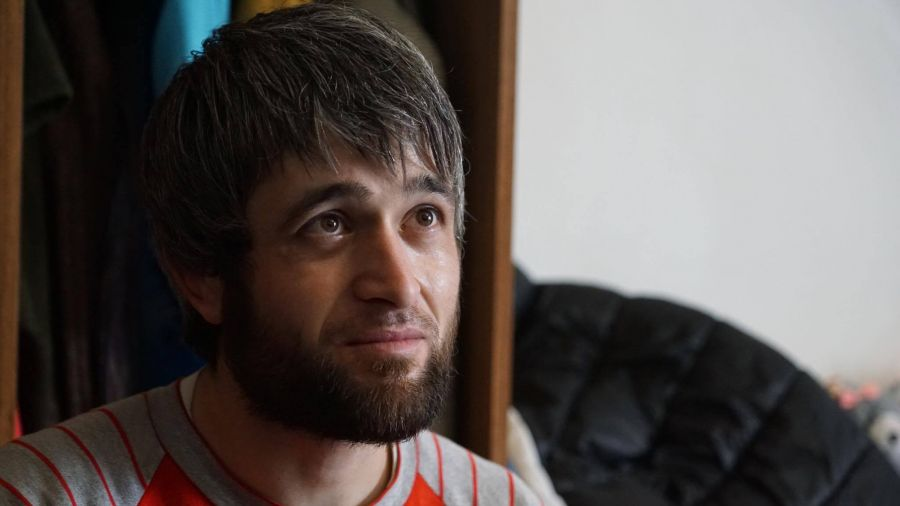
But no justification was brought to the table to support the decision, according to the Russian Memorial Human Rights Center, as there is no evidence of terrorism committed by Hizb ut-Tahrir members. Since then, Hizb ut-Tahrir cases have been continuously brought by Russian authorities to accuse the Ukrainians, Russians, Tajiks, Azerbaijanis and other nations within Russia who profess Islam and disagree with Putin’s regime, of the connection to Hizb ut-Tahrir.
Since 2014, Hizb ut-Tahrir cases have become a legislative method of persecution of Crimean Tatars peacefully resisting occupation.
Mumine Saliieva is the wife of Seiran Saliiev who raises four children on her own. Like her husband, Mumine Saliieva is a Crimean Solidarity Movement activist. She is also a coordinator of Crimean Childhood, an initiative aimed at providing assistance to the children of the Crimean political prisoners.

Recently, Mumine Saliieva has presented her own unique project, the online photo exhibition dedicated to the children of the Crimean political prisoners, who were born after their fathers had been put behind bars. By this initiative, Mumine Saliieva hopes to draw attention to persistent cases of political persecutions in Crimea.
In the period from late 2020 to early 2021, she visited destitute Crimean families in all parts of the peninsula to take kids portraits and hear their stories. Mumine would take around 400-500 shots of each child and choose one that would speak to the audience the best. The project gallery depicts portraits of 12 children of the political prisoners displayed by the age of the kids, from eight-month-old Akhmad Bektemirov to five-year-old Safiya Vaitova. These kids share a common family story — their fathers were incarcerated for the trumped-up charges while they were in their mother’s womb. Therefore, some of these children have never met their fathers, while some have seen them only through prison bars.

Akhmad Bektemirov, 8 months old
January 28, 2021, Simferopol
On July 7, 2020, while Lemara, Akhmad’s mother, was still pregnant, their home was searched and her husband arrested — Vadym Bektemirov, Islamic doctrine major, who since 2014 was helping people send packages to their imprisoned relatives as well as attended so-called trials of Crimean Muslims. His arrest proved too much for Akhmad's grandfather, who died two weeks later. Vadym Bektemirov is facing a sentence of up to 20 years in prison.

Muhammad Izetov, 1 years 9 months old
January 15, 2021, Simferopol
According to his mother, Zeyneb Yazydzhiyeva, little Muhammad got a legally oriented mind from his father, Riza Izetov, a Crimean human rights defender and member of the Crimean Solidarity. He was arrested on March 27, 2019 — two months before his son was born. Before that Riza was pursuing human rights activities, providing legal advice and attending “court” hearings in political trials. Riza Izetov, along with other defendants in yet another “terrorism” case, is currently awaiting trial. Muhammad likes to kiss a photo of his father. They might never see each other outside of prison since Riza Izetov is facing a life sentence.

Sulbiye Abdurakhmanova, 1 year 11 months old
January 20, 2021, village of Strohanivka, Simferopol Rayon
The family was looking forward to Sulbiye’s birth, as they already have two adult sons and long dreamed of having a girl. She is a very creative, artistic and intelligent child. Sadly, her father, Medzhit Abdurakhmanov, an activist of the Crimean Solidarity, has never met his long-awaited daughter. ‘Bad men took away my dad’, says Sulbiye, even though she’s far too young to understand the difficult issue of her father's imprisonment. He was arrested on March 27, 2019. Medzhit Abdurakhmanov could be sentenced to 20 years in prison.
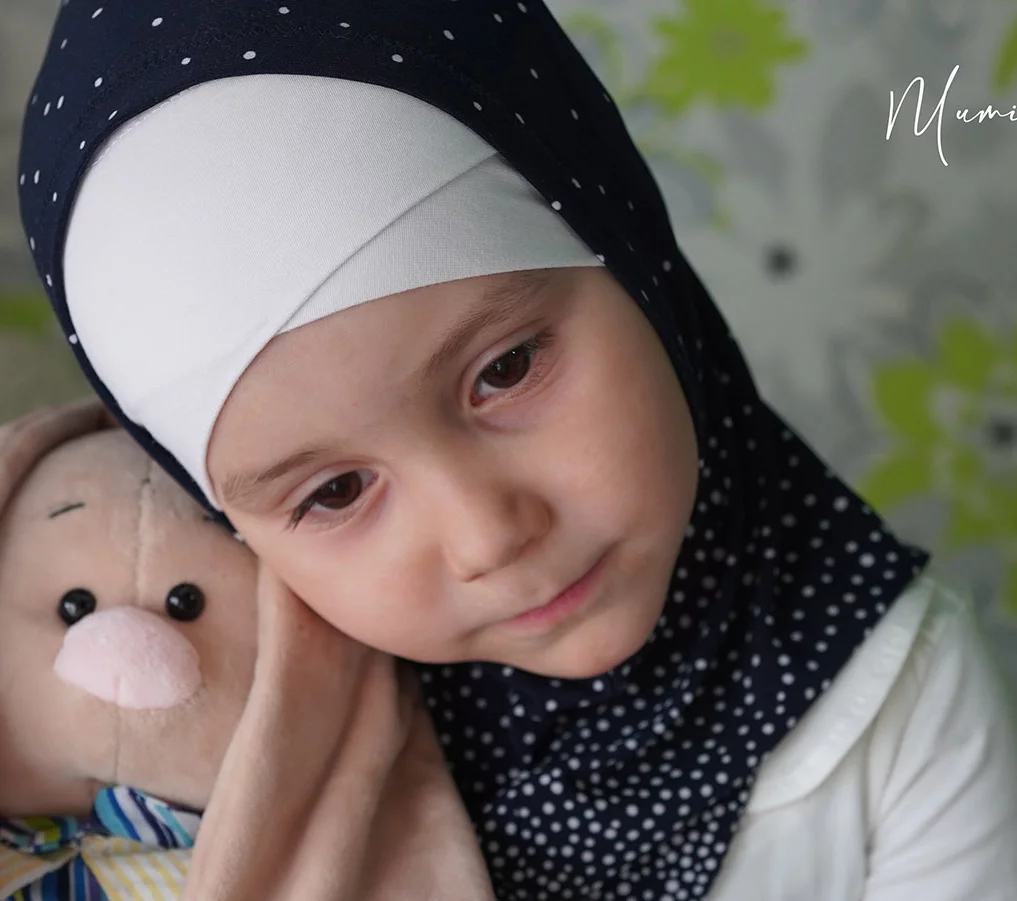
Asiya Dzemadenova, 4 years 4 months old
December 2, 2020, village of Strohanivka, Simferopol Rayon
Asiya is going to be five soon. When asked about her father, she says he’s ‘in prison because bad people took him away'. Her father, political scientist Emil Dzhemadenov, was arrested on October 12, 2016, on “standard” charges of terrorism. Like the rest of the defendants in the case, he never had any criminal intentions. During the trial, Asiya's mother, Liana Bielialova, would take her several-month-old daughter with her to the windows of the courtrooms where closed hearings were held. The child will be 12 by the time her father serves his sentence.

Khanifa Siruk, 4 and a half years old
January 5, 2021, village of Semenne, Nyzhniohirskyi Rayon
Khanifa’s father sends her drawings made on fabric with coloured pens from prison in Bashkortostan. However, the five-year-old does not really understand who this “dad” is and what he does, as she has never seen him in person. The girl's father, Vadym Siruk, a Ukrainian Muslim and Crimean Tatar activist, was arrested on February 11, 2016, and later sentenced to 12 years in a maximum-security prison in one of the first “cases of Crimean Muslims.”
Mumine Saliieva reflected on the photo project in her short video:
“Childhood is the most vibrant period in the life of a person that never repeats or comes back. Unfortunately, the childhood of kids of political prisoners ended with security forces [of the Russian occupation administration] breaking into their homes early in the morning. Handcuffed and face-down — that is how children saw their beloved fathers in that bitter morning. As of today, the number of Crimean kids growing without their fathers reached a colossal mark — 191. Twelve of them were born after their fathers had been arrested. Basically, these are the kids who have not seen or known their fathers. Children meet their fathers through photographs and video reports and treat them as their favourite movie characters. But over the years, growing up, they more often ask who ‘dad’ is.”
The project is available in both English and Ukrainian languages via this link.


